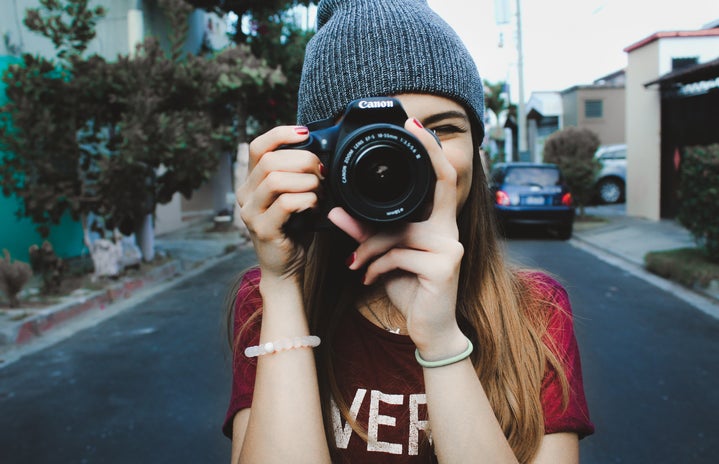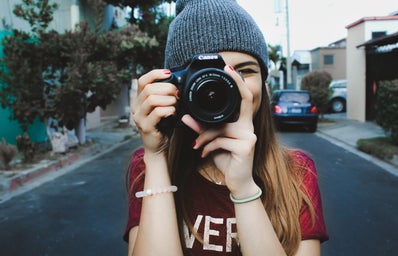You’ve probably heard it once before: social media isn’t that great. Beyond the usual, no-brainer negative aspects of social media (yeah, you who stalk your exes–which is all of us–I’m talking to you), social media wasn’t created for the sole purpose of bringing people together. Social media was, in fact, designed in an incredibly smart, intentional way with one objective: to keep us hooked.
Sean Parker, the founding president of Facebook, admitted that Facebook was developed with an idea in mind: “How do we consume as much of your time and conscious attention as possible?” The answer, for them, was in psychology. Whenever an individual receives a like or comment on their content, Parker states they “give you a little dopamine hit.” In essence, a molecule is really what keeps these social media engines running.
Almost all social media networks function mainly through the process of giving or receiving a “like” or “comment” or “follow”. Through creating a digitized, visual representation of yourself and identity on a platform containing a network of people you know (and sometimes people you have never met), you enter a space in which the self becomes a subject of critique. Here, the self is evaluated on the basis of a set of collective values: attractiveness, humor, and wealth, to name a few. Then, arbitrary representations of what is “good” or “enjoyable” (through a “like” or “comment”) is assigned to these visual representations of the self. More likes = value. More comments = value. I hear so often, “Should I delete this picture? It got barely any likes.” It is the illusion of value and connection that social media thrives, or rather, depends on.
What’s more, social media is addictive as hell. According to the Guardian, “Most social media sites create irregularly timed rewards, a technique long employed by the makers of slot machines, based on the work of the American psychologist BF Skinner, who found that the strongest way to reinforce a learned behaviour in rats is to reward it on a random schedule.” We check social media so often, hour after hour, because we’re never quite sure when we’ll see something that gives us that dopamine rush. This chance–or luck–factor that makes gambling so addictive is precisely what makes social media so addictive. We keep playing until we get our reward, and continue to come back for more.
But social media addiction can come with a price: lower self-esteem, less sleep, and loneliness. With modern times, humans are surrounded constantly by artificial light. The biggest culprit of these is blue light (blue light is emitted through phone, computer, and television screens), which has the ability to inhibit the body’s production of melatonin. Melatonin functions in response to light and communicates to the body when it is ready to sleep or wake up. According to BBC, how often an individual checked their social media was linked to higher rates of disturbed sleep patterns. Ditch the phone after 8pm, folks!
Next, according to a study conducted by Penn State University in 2016 suggested that, “viewing other people’s selfies lowered self-esteem, because users compare themselves to photos of people looking their happiest.” In addition, a study from Ohio University found that many women compare themselves negatively to other women’s selfies. In the era of Facetune and armies of Instagram models, we are bombarded by images of idealized (and unrealistic) forms of beauty. When clouded by so many images of what is considered “beautiful”, it is difficult to not assess the “self” to these images. Don’t forget that photoshop, angles, and lighting all contribute to images that only represent a small fraction of an individual. Just because you don’t look like a photoshopped Instagram model everyday (which, first of all, isn’t even real), does not mean you are not beautiful!
Lastly, loneliness. A study done by the American Journal of Preventive Medicine found that “those who spend the most time on social media were twice as likely to report experiencing social isolation.” Ironically, social media is supposed to represent a social community in which you and your friends can enjoyably participate in. However, humans need face-to-face interaction. In this neoliberal society, too often face-to-face interaction is substituted by social media. Skip the phone and hang out with your friends! Challenge your friends to ditch the phone while you are spending time with them, too.
So, should you throw your phone on the floor and smash it into a million pieces with a sledgehammer? No. Should you ditch your iPhone for an edgy, 2000s-Paris-Hilton-vibes flip phone? Probably. Should we be conscious of how much time we spend on our phones? Absolutely. Consider delegating “screen-free” days in your week to read, be outdoors, and enjoy life untainted by the digital. Try restricting how often you go on your phone. Take up new habits that will keep your mind off of social media. When was the last time you sat in the waiting room at the doctor’s office and just stared aimlessly at the ugly (but kind of pretty) floral wallpaper like you did as a child? Let your brain and heart breathe, girl.



